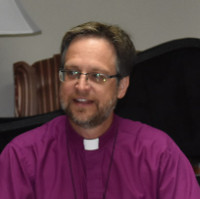White symbolizes purity, holiness, and virtue, as well as respect and reverence. White is used for all high Holy Days and festival days of the Church Year, especially the seasons of Christmas and Easter as well as for baptism, marriage, dedications and in some traditions for the ordination of ministers.
Christmas is celebrated to remember the birth of Jesus Christ, who Christians believe is the Son of God.
The name "Christmas" comes from the Mass of Christ (or Jesus). A Mass service (which is sometimes called Communion or Eucharist) is where Christians remember that Jesus died for us and then came back to life. The "Christ-Mass" service was the only one that was allowed to take place after sunset (and before sunrise the next day), so people had it at Midnight! So we get the name Christ-Mass, shortened to Christmas.
THE DATE OF CHRISTMAS
No one knows the real birthday of Jesus! No date is given in the Bible, so why do we celebrate it on the 25th December? The early Christians certainly had many arguments as to when it should be celebrated! Also, the birth of Jesus probably didn't happen in the year 1 but slightly earlier, somewhere between 2 BCE/BC and 7BCD/BC.
The Winter Solstice is the day where there is the shortest time between the sun rising and the sun setting. It happens on December 21st or 22nd. To pagans this meant that the winter was over and spring was coming and they had a festival to celebrate it and worshipped the sun for winning over the darkness of winter. In Scandinavia, and some other parts of northern Europe, the Winter Solstice is known as Yule and is where we get Yule Logs from. In Eastern Europe the mid-winter festival is called Koleda.
The Roman Festival of Saturnalia took place between December 17th and 23rd and honoured the Roman god Saturn. Dies Natalis Solis Invicti means "birthday of the unconquered sun" and was held on December 25th (when the Romans thought the Winter Solstice took place) and was the "birthday" of the Pagan Sun god Mithra. In the pagan religion of Mithraism, the holy day was Sunday and is where we get that word from!
The Roman emperor Aurelian created "Sol Invictus" in 274. but the records of early Christian connecting 14th Nisan to 25th March and so the 25th December go back to around 200!
Christians believe that Jesus is the light of the world, so the early Christians thought that this was the right time to celebrate the birth of Jesus. They also took over some of the customs from the Winter Solstice and gave them Christian meanings.
St. Augustine was the person who really started Christmas in the UK by introducing Christianity in the 6th century. He came from countries that used the Roman Calendar, so western countries celebrate Christmas on the 25th of December. Then people from Britain and Western Europe took Christmas on the 25th December all over the world!
The first recorded date of Christmas being celebrated on December 25th was in 336, during the time of the Roman Emperor Constantine (he was the first Christian Roman Emperor). A few years later, Pope Julius 1 officially declared that the birth of Jesus would be celebrated on the 25th December.
Some people also think that December 25th might have also been chosen because the Winter Solstice and the ancient pagan Roman midwinter festivals called "Saturnalia" and "Dies Natalis Solis Invicti" took place in December around this date - so it was a time when people already celebrated things.
The 12 Days of Christmas start on Christmas Day and last until the evening of the 5th of January - also known as Twelfth Night. The 12 Days have been celebrated in Europe since before the middle ages and were a time of celebration.
Epiphany is mainly celebrated by Catholics and Orthodox Christians. It's a big and important festival in Spain, where it's also known as the "The festival of the three Magic Kings" - "Fiesta de Los tres Reyes Mages'" and is when Spanish and some other Catholic children receive their presents - as they are delivered by the Three Kings!
Epiphany Eve (also know as Twelfth Night) marks the end of the traditional Chirstmas celebrations and is the time when you were meant to take Christmas decorations down.
For futher historical information about Christmas please click on the links below.
http://www.biblicalarchaeology.org/daily/biblical-topics/new-testament/how-december-25-became-christmas
http://www.patheos.com/Resources/Additional-Resources/Four-Reasons-Why-Christmas-Matters

